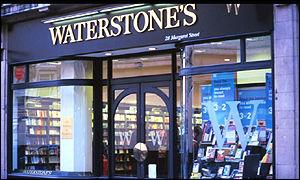 In a long Guardian story about Waterstones's "extraordinary turnaround" in the past four years, managing director James Daunt listed several key changes that brought the U.K. bookselling chain back from the brink after many layoffs at the beginning of his tenure.
In a long Guardian story about Waterstones's "extraordinary turnaround" in the past four years, managing director James Daunt listed several key changes that brought the U.K. bookselling chain back from the brink after many layoffs at the beginning of his tenure.
One of the most important changes: Daunt allowed staff to buy titles that fit their stores rather than relying on publishers to purchase space in the stores. "The Piccadilly store, for example, has a range of books on Chinese history and travel titles from Eland Books that are not available in other locations," the Guardian noted. Daunt observed: "If you did that in Middlesbrough, they would think you were bonkers. But in London that table sells absolutely massively." As a result, over the past four years the company's returns rate to publishers has dropped to 4% from 23%.
Waterstones has also stopped requiring staff to wear uniforms, ended three-for-two offers and put an emphasis on "what a bookseller should actually do," particularly handselling.
This year, Waterstones should earn its first annual profit since the financial crisis. The rebound in printed books has helped. At the same time, as the Guardian put it, "the digital revolution has stalled. Sales of e-books to consumers are falling and demand for the Kindle e-reader has fallen so much that Daunt has removed them from most of Waterstones' 280 stores."
Daunt explained: "I always believed there would be a natural point of equilibrium with digital reading--that it would overshoot, then come back and settle down. That made intuitive sense, and that indeed has happened.
"If you go on a plane or a train on holiday, you will see many more people reading a physical book rather than digital. [Reading an e-book] is a very different experience. You don't remember it as well. I know it's not just me. You don't have the physical relationship. You don't know where you are in a book. It may say 62%, but it doesn't mean the same thing. You can't remember what it's called because you haven't had the cover."
Daunt also had more comments about Amazon Books, the e-tailer's first bricks-and-mortar location: "I would be surprised if that is anything other than a Seattle phenomenon. It would clearly be a major difficulty for us if it isn't that. If somebody chooses to try to replicate what you do and is quite prepared to lose massive amounts of money doing it, that can cause untold damage. But I can't see what possible commercial reasons they would want to do it. It doesn't help them." He added: "It doesn't sound very nice. Five thousand titles is really not very many [and] it has the presentational sophistication of Tesco."

